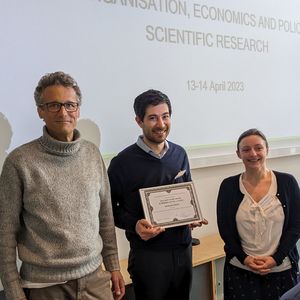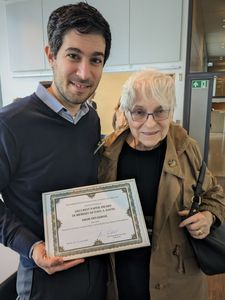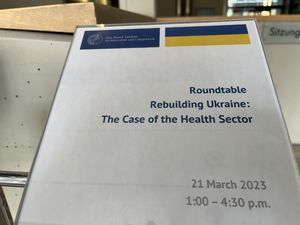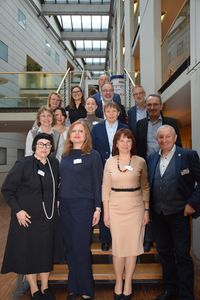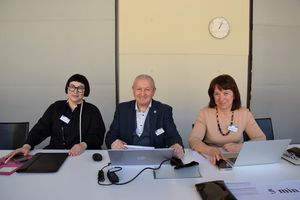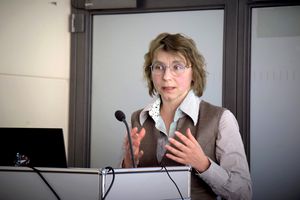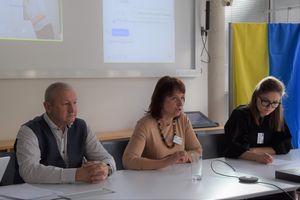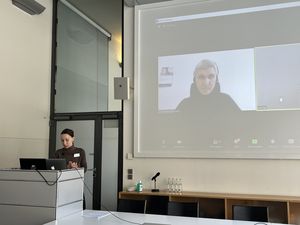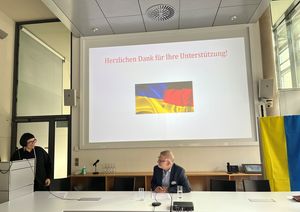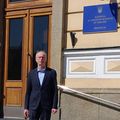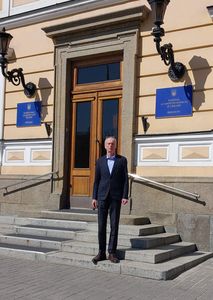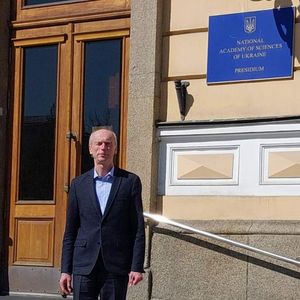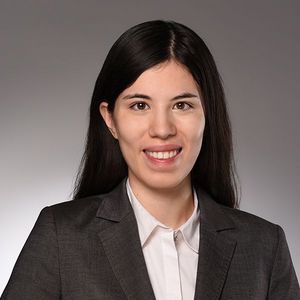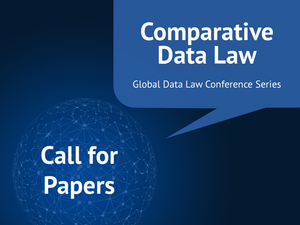The roundtable was organized by Liudmyla Petrenko, Daria Kim, and Oksana Kashyntseva, and focused on health-related policies and regulations in Ukraine.
The speakers represented a wide range of institutions, including the National Security and Defense Council of Ukraine, the Kyiv National Economic University, the Ukrainian Association for Clinical Research, the Taras Shevchenko National University of Kyiv, the National Academy of Legal Sciences of Ukraine, and the Yaroslav Mudryi National Law University.
The Ukrainian Pharmaceutical Industry: Strategic and Industrial Policy Perspectives
In the first panel, moderated by Dietmar Harhoff, the discussion focused on the high rate of pre-war development of the industry, its potential, and the devastation of the first year of the war.
Ukrainian pharma has over 100 years of history. The first industrial pharmaceutical production was established in Kharkiv in 1907. During Soviet times, approximately 70 % of the industrial pharmaceutical and research capacity of the Soviet Union was concentrated in Ukraine. In the year before the war, Ukraine’s pharmaceutical market totaled over 3.6 billion USD. The pharmacy segment accounted for 3.2 billion USD, while the hospital segment accounted for 0.4 billion USD.
As of today, 1,400 buildings in Ukraine have been damaged or destroyed, including 574 health care facilities. The majority are primary, emergency, and specialized care institutions. According to preliminary estimates, the cost of reconstruction is about 1 billion USD. Correspondingly, the Ukrainian pharmaceutical market losses in 2022 compared to 2021 amounted to 22.4 % in physical terms (units of drugs), 26.7 % in monetary terms, and 19.2 % in pharmacies, of which nearly 4,000 were closed. As a consequence, the access to medicine was disrupted all over Ukraine.
Drug Research and Development in Ukraine
The second panel, moderated by Anastasiia Lutsenko, focused on clinical trials.
Clinical research before the war had a significant economic impact. Every year, Ukraine’s share of patients in clinical trials was 2 % of the global patient pool (30,000 active participants in 500 studies), which is a great share for such a small country. In the five years before the start of the war, the number of new clinical studies increased by a factor of 2.5, the number research sites grew by 20 % and the number of active researchers in the field by 44 %.
The plan for restoring the Ukrainian health care system from the consequences of the war for the next decade provides for exemption from VAT on imports of medicines for clinical trials, tax, and other incentives for companies involved in conducting clinical trials, the development of the research infrastructure and research potential, and the introduction of an insurance system for clinical research in the form of compensation for possible damages to all participants in clinical trials.
A Regulatory Framework Outlook for the Ukrainian Pharmaceutical Sector
The presenters of the third panel, moderated by Daria Kim, criticized the practice of pharmaceutical marketing in Ukraine.
They accused the inadequate approach of pharmaceutical and medical professionals in performing their duties, for example, by promoting products that are either dangerous to patients or without proper therapeutic effect to receive an improper benefit. They also addressed the monopolization of pharmacy activity, which is carried out in covert form and results in significant price increases for pharmaceutical products, and the adulteration of pharmaceutical products.
The tacit support of monopolization of pharmacy activities by the state, especially by local governments, and the creation of pharmacy mega-chains has led to minimization of economic competition and abuse of monopoly power. The state’s tacit consent to the development of marketing agreements in the pharmaceutical market has increased the cost of medicines. Comparison with prices in reference countries has shown that, before the war, prices for pharmaceutical products in Ukraine were inflated by 40 % due to the use of marketing agreements.
Perspectives on Intellectual Property in the Pharmaceutical Industry in Ukraine
The last panel, moderated by Reto M. Hilty, showed that Ukraine has significant production capacities with about 120 pharmaceutical companies, which offers options for further cooperation between Ukraine and the European Union:
- Contract manufacturing for major international producers of medicines, transfer of new technologies and production of innovative pharmaceuticals (to supply the markets of the EU, Ukraine, Moldova, Georgia, and Middle East and North Africa)
- Integration of Ukraine into reduced supply chains through the production of active pharmaceutical ingredients (API) for the needs of the EU
- Production of mRNA-based vaccines in Ukraine
- Guarantee of uninterrupted supply of generic medicines (by replacing supplies from China and India)
- Conducting clinical trials in Ukraine to replace the Russian market, where trials are now suspended by most international companies due to international sanctions.
The roundtable ended with appeals to the EU and international partners to develop and implement programs to encourage international companies to cooperate on technology transfer and the localization of drug production in Ukraine, and to make use of the country’s logistical advantages. It was also suggested to create financial support programs for the development of API production in Ukraine. The regulatory barriers for the export of Ukrainian medicines to the EU should be simplified through the implementation of special inspection procedures to ensure good manufacturing practice (GMP) following EU GMP standards, and special inspection procedures for the domestic market of Ukraine (PIC/S GMP standards) as well. This should be accompanied by the establishment of training programs and the appropriate validation of inspectors issuing certificates according to EU GMP standards for Ukrainian producers.
We thank all speakers and participants, especially our guests from Ukraine, as well as the organizers for their valuable contributions, and look forward to further Roundtables to help rebuild Ukraine for a properous future.
See the full program with all speakers and their affiliations, and all topics.
To the short review of the first exploratory roundtable held on 1 December 2022.


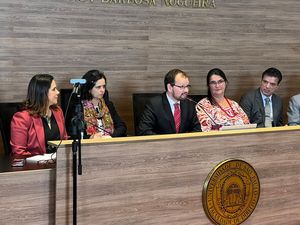
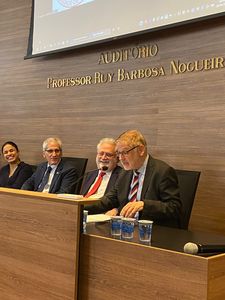

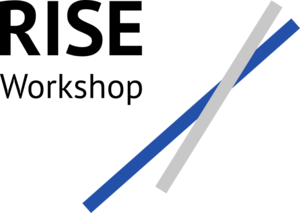



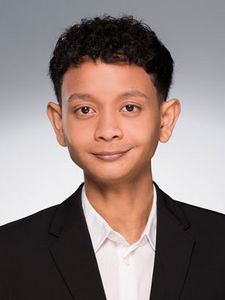
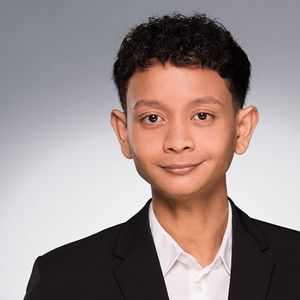
![[Bitte nach "english" übersetzen:] Group picture WOEPSR 2023](/fileadmin/_processed_/b/5/csm_WOEPSR23_Auswahl_Gruppe_4ad07e35bd.jpg)
![[Bitte nach "english" übersetzen:] Group picture WOEPSR 2023](/fileadmin/_processed_/b/5/csm_WOEPSR23_Auswahl_Gruppe_51351208cc.jpg)
![[Bitte nach "english" übersetzen:] Kick-off WOEPSR 2023. f.l.t.r. Dietmar Harhoff, Michael E. Rose, Hanna Hottenrott](/fileadmin/_processed_/d/e/csm_WOEPSR23_Kickoff__Foto_Thomas_Schaper__2b52c88694.jpg)
![[Bitte nach "english" übersetzen:] Audience WOEPSR 2023](/fileadmin/_processed_/5/8/csm_WOEPSR23_Plenum_DH_dc7102c39b.jpg)
![[Bitte nach "english" übersetzen:] Audience WOEPSR 2023](/fileadmin/_processed_/f/b/csm_WOEPSR23_Plenum_Bronwyn_51cbc825ca.jpg)
